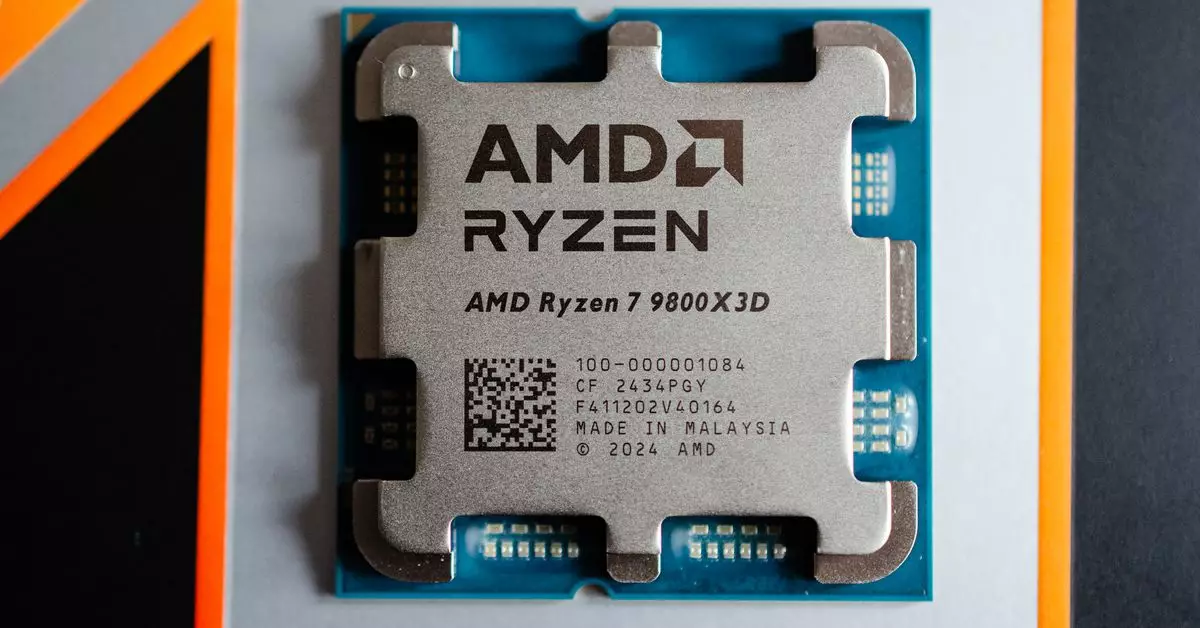AMD has recently unveiled its Ryzen 7 9800X3D, a processor that has garnered considerable acclaim from technology analysts and enthusiasts alike. As a powerhouse in the gaming industry, the Ryzen 7 9800X3D boasts features that promise to elevate the gaming experience to unprecedented levels. However, with great anticipation comes significant challenges, particularly in terms of availability, which has become a critical issue following its launch.
Since its debut, the Ryzen 7 9800X3D has faced overwhelming demand, resulting in stock shortages across multiple retailers. Major platforms such as Newegg and Best Buy have already sold out. In addition, frustration is mounting as customers in regions like Europe, particularly Germany and the UK, report similar unavailability. While some retailers are accepting preorders with expected delivery dates as late as late November or December, it still leaves consumers in limbo, eagerly awaiting their new CPUs.
This situation highlights a disconnect between demand and supply, as AMD appears to have underestimated the level of consumer interest in its latest offering. This phenomenon is not merely a symptom of a single product launch; it underscores a broader issue affecting the tech industry, where the surge in demand for high-performance computing components often outpaces manufacturers’ capabilities to meet it.
The scarcity of the Ryzen 7 9800X3D on retail platforms has opened the floodgates for scalpers, many of whom are listing the CPU on auction sites like eBay at exorbitant prices — sometimes reaching up to $999. This inflated pricing is frustrating for genuine consumers who aimed to purchase the CPU at its retail price of $479. Scalpers rushing to capitalize on the situation can deter potential buyers and ultimately distort the market dynamics, promoting feelings of resentment among the community.
AMD’s development strategy has often focused on staying ahead of competitors, but the timing of the Ryzen 7 9800X3D’s unveiling raises questions about its release cadence. Given that the announcement came less than three months after the introduction of the Zen 5 desktop CPUs, some analysts speculate that this rapid rollout may be an attempt to regain market dominance amid competition from Intel’s Core Ultra series. It remains to be seen if this tactic will pay off, as the company grapples with balancing product launches and maintaining sufficient stock levels.
As AMD navigates these choppy waters following the Ryzen 7 9800X3D launch, it is evident that swift resolution of supply chain issues is vital. The company must address growing consumer disappointment and capitalize on the positive reviews to foster brand loyalty. Creating stronger partnerships with retailers and improving inventory management could be essential in reestablishing a sense of reliability in AMD’s product offerings. Without these improvements, AMD risks losing its momentum and the trust of its user base, where consumers eagerly await not just innovation but the opportunity to engage with that innovation at a fair price.


Leave a Reply